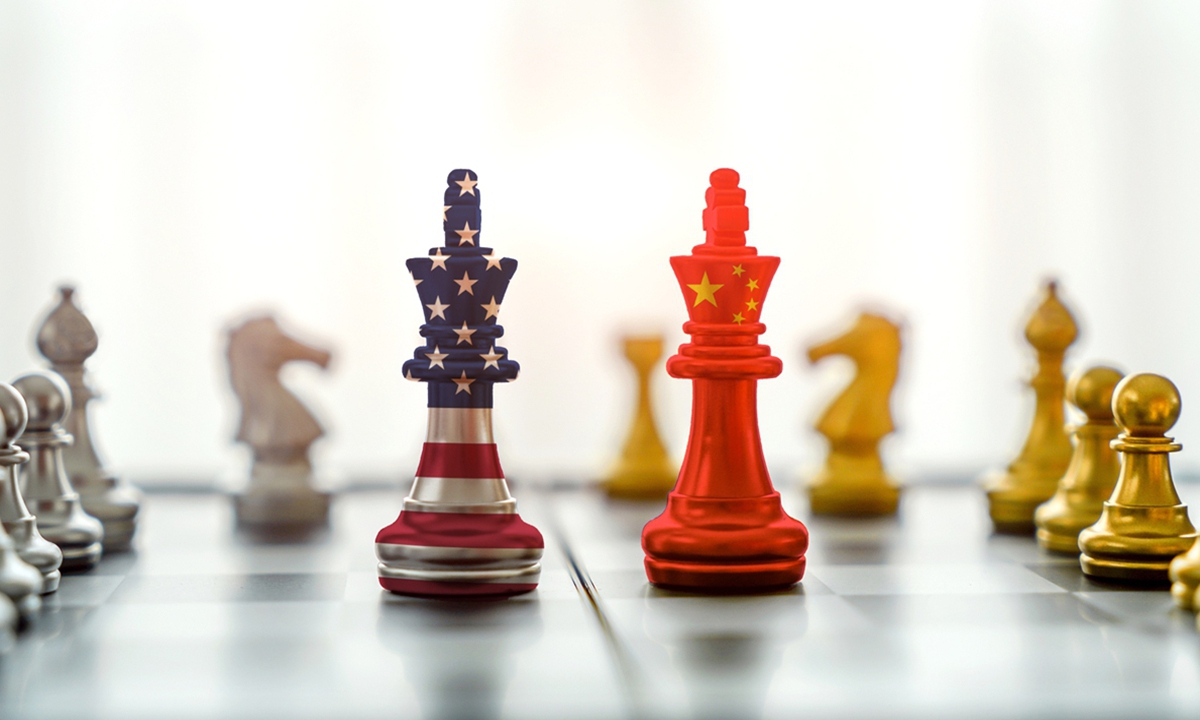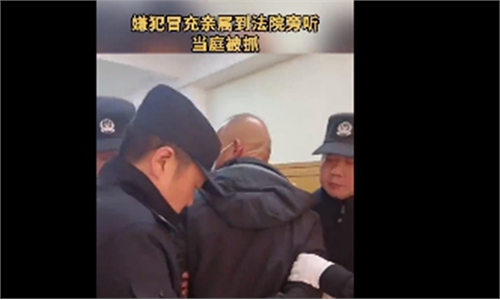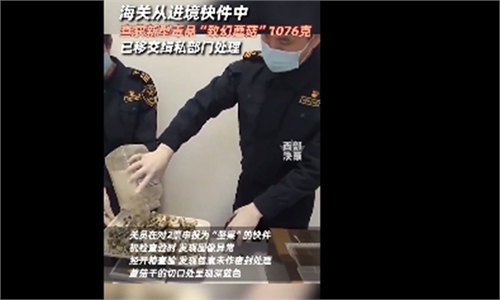China vows 'necessary measures' as US intensifies tech crackdown on Chinese firms
Washington urged to match words with deeds to maintain stabilizing bilateral relations

China US
The US crackdown on China in the high-tech sector has intensified, with a latest move of blacklisting a couple of Chinese firms over their alleged involvement in military business. Chinese observers said on Thursday that the US tech hegemony will not defeat China but only hinder its own tech advance, and they urged Washington to match its words to deeds to maintain the stabilization momentum of China-US relations.
China's Foreign Ministry on Thursday vowed that the country will do what is necessary to firmly safeguard the lawful rights and interests of Chinese companies, while urging the US to stop politicizing trade and tech issues and turning them into weapons.
The US is adding four Chinese companies to an export blacklist because they are "involved with providing artificial intelligence (AI) chips to China's military modernization programs" and "military intelligence users," Reuters reported on Wednesday, citing Kevin Kurland, an export enforcement official with the US Commerce Department.
These companies are LINKZOL (Beijing) Technology Co, Xi'an Like Innovative Information Technology Co, Beijing Anwise Technology Co and SITONHOLY (Tianjin) Co, according to the report.
"The latest US move is not surprising at all. Considering China its most important strategic competitor in recent years, the US has made it a fundamental policy to crack down on and decouple from China in a bid to contain China's development," Yuan Zheng, a deputy director and senior fellow at the Institute of American Studies at the Chinese Academy of Social Sciences, told the Global Times on Thursday.
Yuan said that the technological hegemony and monopoly of the US will only harm its own image and hinder its technological advance. As the years-long China-US tech war drags on, the US has recognized that China can't be struck down overnight.
"China holds no illusions about the US side stopping technological containment one day, and thus it is focusing its efforts on technological breakthroughs and self-reliance," Yuan said. He said that China-US relations are unlikely to see substantial improvement in the short term, despite recent exchanges between senior officials from the two sides.
The US Commerce Department also added China's Jiangxi Xintuo Enterprise Co to the list for supporting Russia's military through the procurement, development and proliferation of Russian drones, Reuters said, citing a posting on the US Federal Register.
Another Chinese company, Shenzhen Jiasibo Technology Co, was added, it said.
Mao Ning, a spokesperson of the Chinese Foreign Ministry, said at a regular press conference on Thursday that "China and Russia have the right to normal economic and trade cooperation, and such cooperation should not come under external interference or constraint. We strongly oppose the US' illegal unilateral sanctions."
For some time, the US has blacklisted Chinese companies for export controls with their alleged involvement in Russian business or military purposes. The US has abused the national security concept and export control measures, and randomly imposed unilateral sanctions and pursued long-arm jurisdiction. This is a typical economic coercion and unilateral bullying, He Yadong, spokesperson of China's Ministry of Commerce, said on Thursday.
Rong Ying, a senior research fellow at the China Institute of International Studies, told the Global Times on Thursday that the unilateral and protectionist behavior of the US has seriously harmed the stability and safety of global industrial and supply chains, negatively affected the green transition of developing countries, and violated the market economy and fairness rules it has always advocated.
"Most countries do not want to engage in camp confrontation or choose sides between China and the US, and even US allies are half-hearted in following Washington's containment against China," Rong said, calling for increased communication between China and the US to avoid strategic misjudgment.
More discussions are needed so as to clarify the "red lines" and boundaries of some concepts, of which, the Taiwan question is the first red line that must not be crossed in China-US relations, Rong said.
As China-US relations have shown signs of further stabilization amid US Treasury Secretary Janet Yellen's recent visit to China, it is hoped that the Biden administration will refrain from taking more unilateral actions that may lead to a reversion of the sound trend, he said.
"During her stay in China, Yellen repeated Washington's pledge not to seek decoupling from China. Then, the US should match its words with deeds by taking concrete actions to stop sanctions and restrictions on Chinese companies," Rong said.
While China faces temporary challenges, the US has more troubles domestically, for example race issues and partisanship, which will weigh in on the country's long-term development and international competition, Yuan said. He said that China will focus on its own business such as boosting its economic recovery and improving its business environment so as to strengthen national cohesion.



